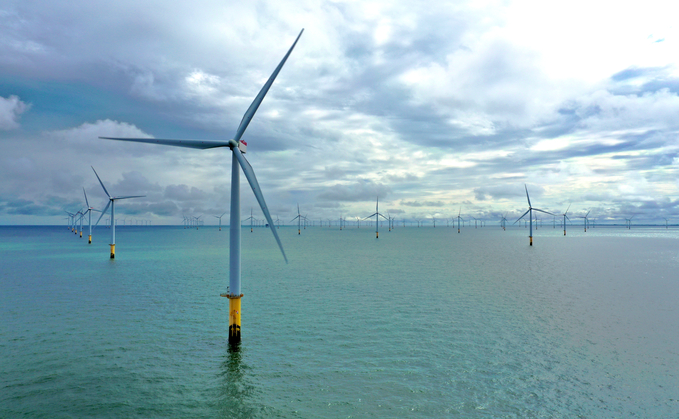
It was only a few years ago that the UK was aiming for an 80 per cent cut in emissions by 2050 - now the goal is an eminently achievable 81 per cent cut by 2035
When the UK Climate Change Act was passed under the last Labour government back in 2008 it established a then world-leading target to cut emissions by 80 per cent against 1990 levels by 2050. At the time, UK emissions were only 13 per cent below 1990 levels and the 80 per cent target was deemed to be a hugely challenging and ambitious, but still achievable goal.
Sixteen years on and the new Labour government has just confirmed the UK will now aim to cut emissions by 81 per cent against 1990 levels by 2035 - a full 15 years earlier than the original target date. UK emissions are now around 53 per cent below 1990 levels following a decade and a half when the country has decarbonised faster than any other G20 nation.
The new target - confirmed through the submission of the UK's Nationally Determined Contribution under the Paris Agreement - is basically in line with existing domestic goals approved by the last government through the UK's system of five yearly Carbon Budgets. But just as was the case back in 2008, it is possible to make an argument the target announced yesterday by Keir Starmer at the COP29 Climate Summit in Baku is too ambitious and could ultimately prove counterproductive. Some of these arguments even manage to make sense.
The UK is off track to meet both its near term target to cut emissions 68 per cent by 2030 and the new 81 per cent target for 2035. Delivering on these goals will require a huge increase in investment, the rapid expansion of a skills base and supply chains that remain far too flimsy, and a sweeping overhaul of planning regimes and energy systems. Regardless of Starmer's assurances to the contrary, there will be some disruption to people's lives. Energy costs should be curbed as the net zero transition accelerates, but they will remain exposed to price shocks and geopolitical risks that could derail the whole enterprise. The political backlash against any and all climate action will only be emboldened by a Trump presidency.
But it is worth reflecting on the progress that has been made in getting to this point. We have gone from a position where an 80 per cent cut in emissions by 2050 was deemed to be challenging but achievable to a point where an 81 per cent cut in emissions by 2035 is deemed to be challenging but achievable. Real world emissions have gone from 13 per cent below 1990 levels to 52 per cent below 1990 levels, and are now falling fast. Every new electric vehicle, heat pump, wind turbine and solar panel is destroying fossil fuel demand, reducing emissions, and curbing oil and gas imports.
Critically - and contrary to what you will read in certain media outlets - other countries are following suit. EU emissions are 37 per cent below 1990 levels, US emissions have peaked and are down around three per cent on the same baseline, recent reports suggest China's emissions could now be peaking. A new report today underscores how increasingly robust climate regulations are now the norm in all the world's major economies. CDP has just totted up the commercial opportunities identified by businesses from the net zero transition - the projected total stands at $5tr. Booming clean tech markets mean global emissions really should peak in the next few years - an historic milestone that will provide incontrovertible evidence that the clean energy transition is working.
Meeting the 81 per cent target set by Starmer yesterday will prove even more challenging than the previous emissions goals that have been comfortably surpassed in recent years. You can only close the coal power plant fleet once. The next wave of emissions reductions will present significant policy and technical challenges. The final 20 per cent of emissions that will need to be eradicated between 2035 and 2050 will prove more daunting still.
But against a backdrop of worsening climate impacts and numerous political setbacks, the story of UK climate action over the past 16 years has been one of challenges overcome and progress made. Maybe the Trump apologists are right and a reckoning is coming. Maybe the run of decarbonisation successes recorded since 2008 will suddenly grind to halt. But as the clean energy project pipeline expands, electric vehicles become increasingly ubiquitous, and clean tech costs continue to fall, maybe it won't. Maybe the opponents of climate action were wrong then, and they're wrong now.
A version of this article first appeared as part of BusinessGreen's Overnight Briefing email, which is available to all BusinessGreen Intelligence members.









